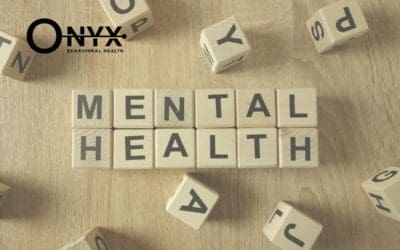Trauma Disorders and PTSD

Trauma disorders were first widely recognized following major wars when soldiers were coming home and struggling to return to their normal lives due to the trauma they experienced, witnessed, or heard about during their time serving. However, trauma doesn’t just affect those who experienced war-time trauma.
In fact, 3-5% of people are diagnosed with post-traumatic stress disorder each year, with approximately 11% of the population receiving this diagnosis each year. Experiencing, witnessing, or even hearing about any traumatic event can lead to trauma disorders such as PTSD.
%
of adults in the U.S. will have PTSD at some point in their lives
million Americans had PTSD in 2020
Understanding Trauma Disorders
Trauma disorders are a category of mental health conditions triggered by experiencing or witnessing a traumatic or highly stressful event. Trauma disorders can be triggered by exposure to terrifying events, such as actual or threatened death, serious injury, or sexual violence.
This exposure can come from directly experiencing the event, witnessing it happen to someone else, learning it happened to a loved one, or being repeatedly exposed to disturbing details of a traumatic event.
Types of Trauma Disorders
The Diagnostic and Statistical Manual of Mental Disorders, Fifth Edition, also referred to as DSM-5, recognizes several distinct trauma disorders. These disorders share a common thread: they develop after someone experiences a terrifying event. The types of trauma disorders include:
- Post-traumatic stress disorder (PTSD)
- Acute stress disorder (ASD)
- Secondhand trauma
- Adjustment disorders
- Reactive attachment disorder (RAD)
- Disinhibited Social Engagement Disorder (DSED)
Signs and Symptoms of Trauma Disorders
Early intervention is crucial. Knowing the signs of trauma can empower you or someone you care about to get the help they need. Trauma disorders can cause a wide range of symptoms, often grouped into four main categories:
Re-experiencing Symptoms
Experiencing flashbacks
Recurrent memories or dreams related to the trauma
Distressing thoughts
Physical signs of stress (such as tension or elevated blood pressure)
Avoidance Symptoms
Avoiding places, events, or objects that are reminders of the trauma
Avoiding thoughts or feelings related to the trauma
Arousal & Reactivity Symptoms
Easily startled
Tension, always on high alert or on edge
Difficulty concentrating
Insomnia
Irritability
Aggressive outbursts
Risky, reckless, or destructive behaviors
Cognition & Mood Symptoms
Difficulty remembering key features of the traumatic event
Negative thoughts about oneself or the world
Extreme feelings of blame (on self or others)
Consistent negative emotions (ie: fear, anger, guilt, or shame)
Loss of interest in activities previously enjoyed
Feeling socially isolated
Finds it difficult to let positive emotions in (ie: happiness or satisfaction)
Benefits of Trauma Based Treatment
Trauma disorders can be deeply affecting, but there is hope for healing and living a fulfilling life. Therapy plays a crucial role in this process, offering tools and strategies to manage symptoms and build resilience. Trauma treatment focuses on three key areas: reducing your symptoms, equipping you with coping skills, and rebuilding your self-worth.
At Onyx Behavioral Health, our licensed professionals can help you understand the impact of trauma on your thoughts, emotions, and behaviors. Our facility provides a safe and nurturing environment to help you process traumatic memories.
There are different therapies with strong evidence for treating trauma, such as cognitive-behavioral therapy (CBT). CBT focuses on empowering you to address the underlying causes of your fears and develop healthier ways of thinking to improve your overall well-being. In our personalized treatment approach, we can discuss which might work best for you. Read more about Cognitive-Behavioral Therapy (CBT) and Trauma-Focused Cognitive Behavioral Therapy (TF-CBT).
Additional Trauma Disorders
While PTSD is the most widely recognized trauma disorder, it is not the only one. Understanding these different presentations of trauma is crucial for early identification and effective treatment. If you recognize any of these symptoms in yourself or someone you care about, remember, there is hope.
Post-traumatic stress disorder (PTSD)
Post-traumatic stress disorder (PTSD) is a complex condition that is brought on by trauma. It is normal – and often expected – to react to a traumatic event, experience, or story. This is your body’s parasympathetic nervous system (fight or flight instinct) doing its job.
However, sometimes these reactions return. Even when the trauma is over and in the past, your mind and body may not be able to let go of it. Sometimes some triggers bring back a memory or feeling of the trauma, and other times these memories come out of seemingly nowhere. Those who continue to experience those symptoms of trauma may have PTSD.
Acute stress disorder (ASD)
Acute Stress Disorder (ASD) shares some symptoms with PTSD, but they appear much sooner and usually fade within a month of the traumatic event. Symptoms of ASD can include disturbing thoughts, flashbacks, feeling emotionally numb or disconnected, avoiding reminders of the trauma, and feeling on edge or easily startled. Unlike PTSD, these symptoms typically don’t last longer than a month and may not be as severe.
Secondhand trauma
The emotional stress that results from being exposed to the firsthand trauma experiences of others. It’s essentially the impact of someone else’s trauma on your own well-being.
Adjustment disorders
A temporary emotional or behavioral reaction to a stressful life event such as starting a new job, moving to a new city, a serious illness (yours or a loved one’s), relationship problems, financial difficulties or the death of a loved one.
Reactive attachment disorder (RAD)
RAD affects young children and sometimes adults who haven’t been able to form healthy bonds with their caregivers. This can happen when a child’s basic needs for comfort, love, and attention aren’t met consistently. Without these nurturing relationships, children with RAD may struggle to trust and connect with others.
Disinhibited social engagement disorder (DSED)
Similar root cause as RAD but is characterized by children exhibiting culturally inappropriate familiarity with strangers. Disinhibited social engagement disorder, DSED, is also known as disinhibited attachment disorder.
Living with Trauma
Trauma is rarely something that just goes away on its own. Many people actually find that trying to “sweep their trauma under the rug,” so to speak, can actually prevent them from truly moving on. If the symptoms of a trauma are not going away on their own, then getting help sooner then later is going to be paramount for recovery. Untreated trauma can be a danger to the individual struggling, as well as those around them. With the right approach, trauma is something that can be overcome.
Overcoming Trauma at Onyx
At Onyx Behavioral Health, we are here to support you through the process of healing from trauma. Our experienced team understands what it takes to take back control over your life. Contact us today at 888-242-5716 to learn more about our behavioral health treatment residence and why it just might be the right choice for you.
Sources
Discover Healing with Onyx Behavioral Health
Additional Resources
The Benefits of Good Mental Health
Mental health is our mental and social well-being. When we’re in a good place mentally, we’re more equipped to navigate life’s challenges, contribute to our communities, and find fulfillment in all areas. But despite the World Health Organization considering mental...
Can Mental Illness Be Cured?
Many people who struggle with mental illness often wonder if a definitive cure is possible. While modern treatment has helped millions lead more fulfilling lives with less severe symptoms and better coping skills, the reality is that most mental health disorders are...
Mental Health Treatment for Adults
Mental health treatment for adults is as important as physical health for our quality of life, relationships, and overall well-being. However, mental illnesses can develop at any stage of life due to a combination of social, economic, and individual factors. As a...




 Michaela Welk, LMHC
Michaela Welk, LMHC Bunny Berman
Bunny Berman Tank
Tank Richard E. LoSardo, MD
Richard E. LoSardo, MD Christopher Payne
Christopher Payne Bernard Benjamin
Bernard Benjamin Tiffany Bellino
Tiffany Bellino